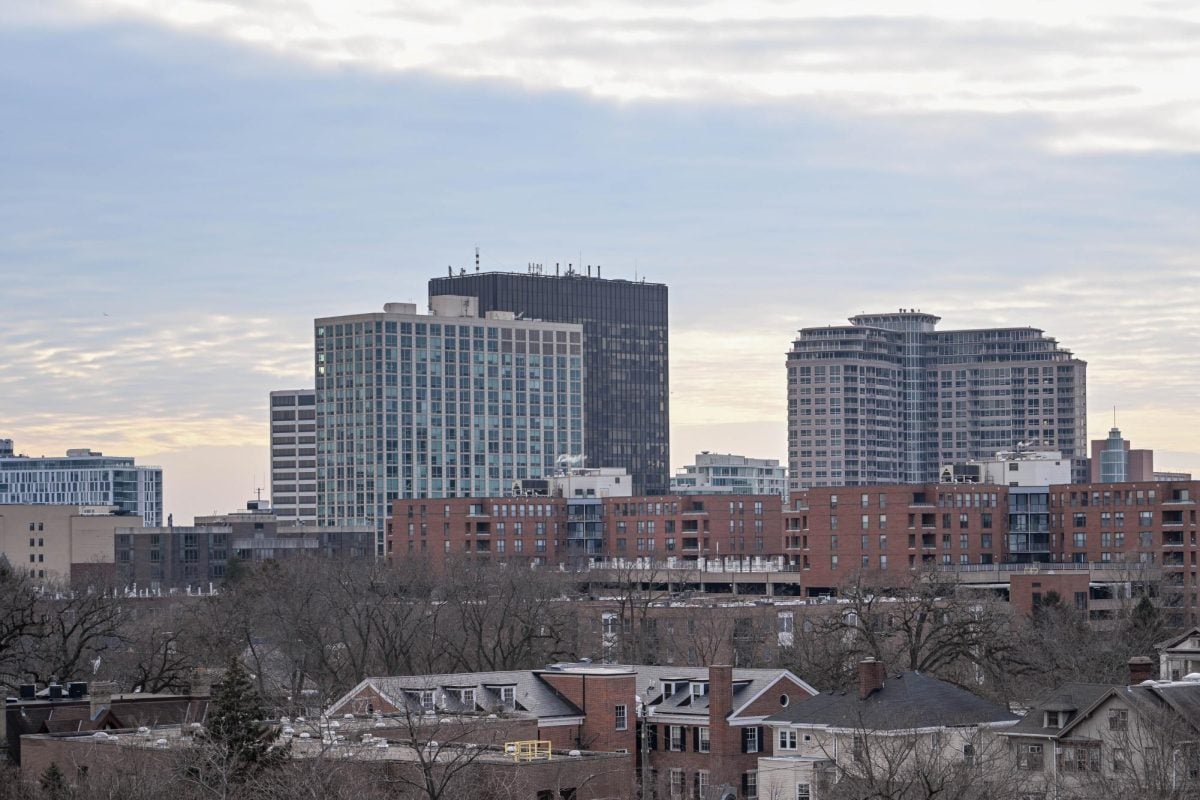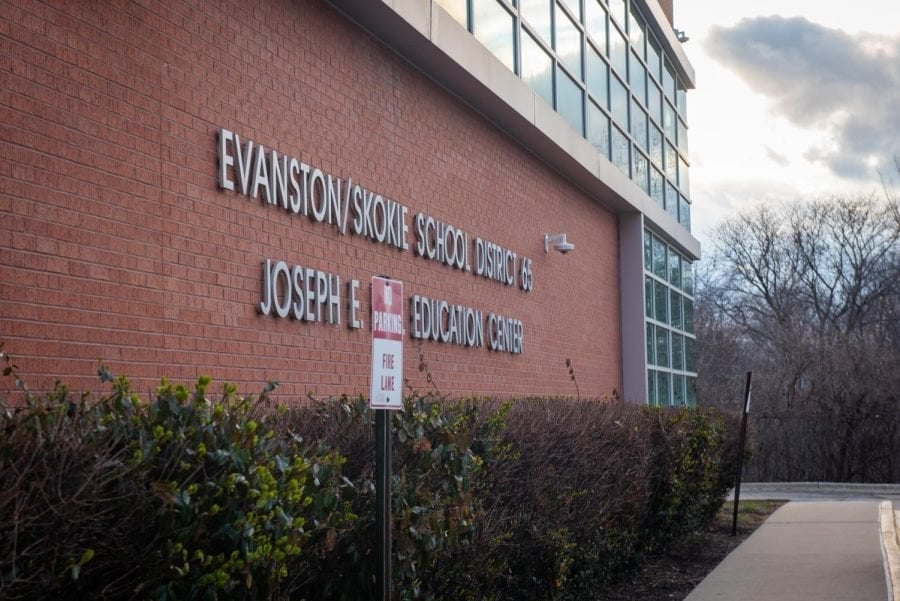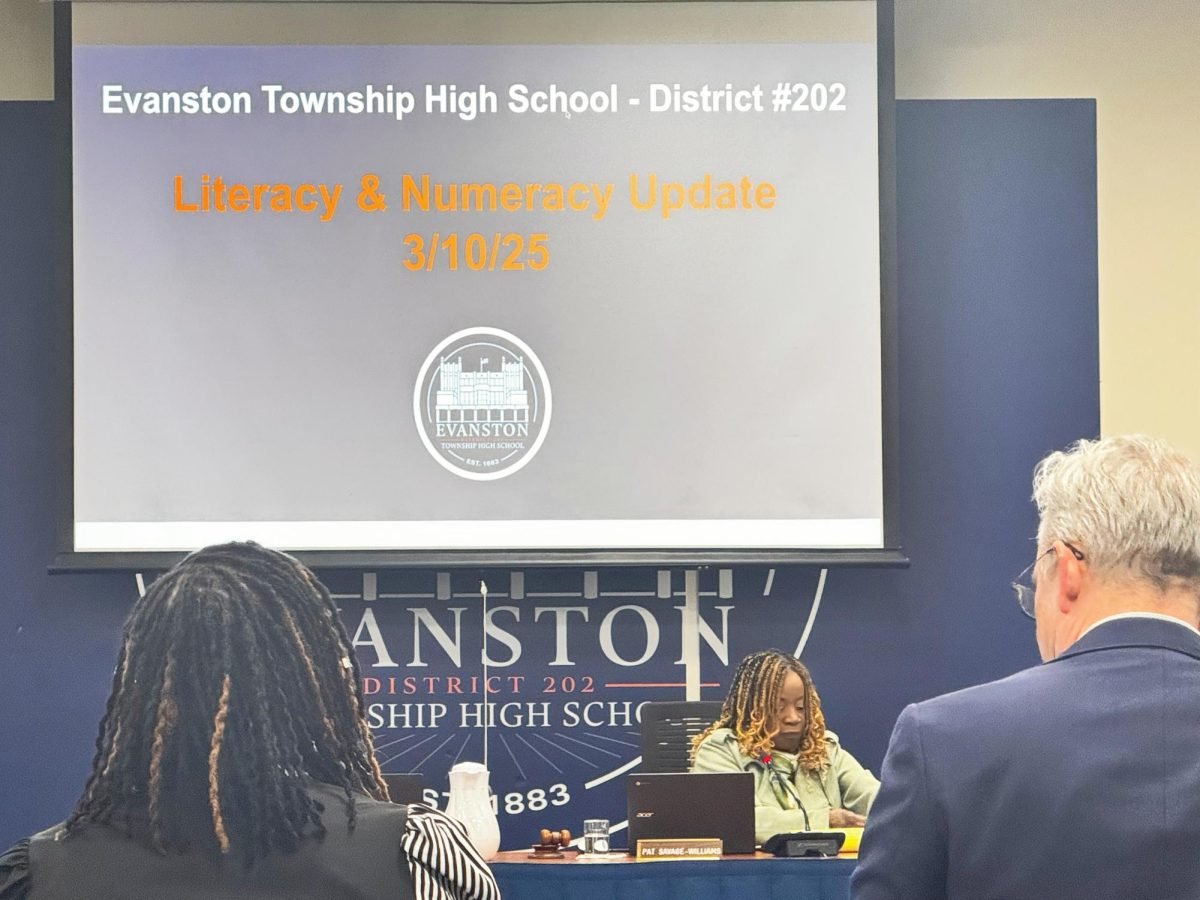Editor’s Note: This story is part of a series of candidate profiles for the District 65 board election.
Peter Bogira is running for one of four open seats on the Evanston/Skokie School District 65 Board of Education.
Bogira is an Evanston native and works as a principal account executive in advertising sales at Roku.
The father of two District 65 students said he wants to use his marketing expertise to navigate the district’s long-term goals, beyond financial stability.
“Sometimes people will be a little bit a prisoner of the moment because sometimes you’re just focused on the fire that’s right in front of you,” Bogira said. “If we brought seven CFOs onto the board, I think it’d be a big miss.”
The Daily spoke to Bogira about his platform and goals for the district if elected.
This interview has been lightly edited and condensed for clarity.
The Daily: What went into your decision to run for the school board?
Bogira: I had a great experience (and) spent the majority of my formative years going through our school system here. That’s not every kid’s experience. I’m experiencing it as an adult and as a parent — a community stakeholder — and I started to think about what my lane was in terms of community service. I think what a lot of community members sometimes feel when there’s a period of tension or downturns financially — feeling like you don’t have much control over anything. There’s a really good opportunity for some fresh faces to bring fresh perspectives.
The Daily: What is your first and foremost goal during your term?
Bogira: A lot of people would expect the first and foremost goal (to be) to return to financial sustainability. That’s a given. That’s a core function of being a board member. I would say when you talk about a term, it’s four years, and we can’t spend four years doing that. There’s too many other things we have to tackle. I’d say the more overarching piece of it is a strategic vision for the district.
The Daily: The district is currently beginning to implement financial cuts from Phase 2 of its Structural Deficit Reduction Plan. The next phase, Phase 3, includes school consolidations. As a board member, what are your priorities when it comes to navigating these consolidations and Phase 3 as a whole?
Bogira: We’re going to have to solicit an exhaustive amount of community feedback, or we have to be really clear (about) the criteria we’re using to make decisions, because we have to meet the community’s expectations around trust.
To me, Phase 3 is an understanding of what we need to have in order to afford our normal operating expenses. I’m not necessarily convinced that we have to get there only through school closures and consolidations. I was a little bit disappointed during the Phase 2 process that there wasn’t more optionality presented. There’s definitely still some areas where we could find efficiencies.
The Daily: One thing several community members have spoken about, especially in regards to the closing of Dr. Bessie Rhodes School of Global Studies, is a lack of communication and transparency from the board. How do you plan to address this gap?
Bogira: There’s a lot of situations where the information is technically there, but you have to really search to find it. (Community members) don’t feel like that’s transparency because you could bury it on some web page and say it’s there rather than sending out an email about something the community feels is important to have clarity on.
The Daily: On your campaign website, you say that the board should focus on an “asset-minded rather than deficit-minded” approach. Could you explain what this would look like?
Bogira: Right now we’re in a deficit-minded approach because we’re saying, “Hey, we have this deficit ahead of us.” Phase 2 was just about one year ahead, so we were making decisions about just balancing the budget for the next school year. There’s ripple effects that go far beyond just next year when you make decisions like that. People are losing their jobs. We’re making section reductions that do have their own impact.
When you think of an asset-minded approach, it’s thinking, “Hey, do we really value schools as community anchors, these neighborhood schools?” If so, are we going to err on the side of closing (fewer schools)?
But going beyond that, it’s going back to that strategic vision. The shortest path to closing a budgetary gap is more of an immediate thing, but we need to be able to balance those decisions with long-term values.
The Daily: Is there anything else you’d like to add about your priorities?
Bogira: There’s a lot of confusion and concern around what official policies and stances we have around the role technology should play in our schools.
While I understand there can be advantages through using technology in the educational environment, we have to be really careful of how we’re forming policies to align with our goals. If social-emotional wellness is one of those goals, we need to consider not just the advantages but the risks of not ensuring there’s proper guardrails in place.
Email: sophiebaker2028@u.northwestern.edu
Related Stories:
— Q&A: D65 candidate Andrew Wymer talks student belonging, strategic plan
— Q&A: D65 candidate Lionel Gentle talks transparency, support for teachers
— Q&A: D65 candidate Nichole Pinkard talks collaboration, Foster School







